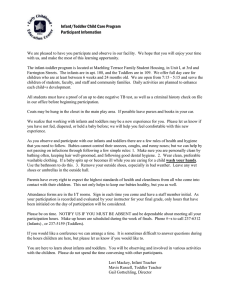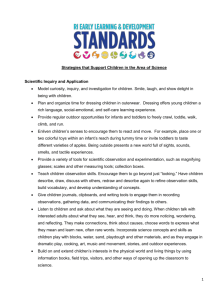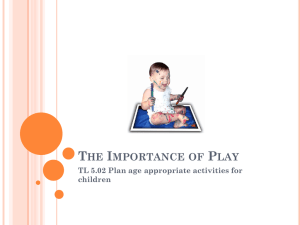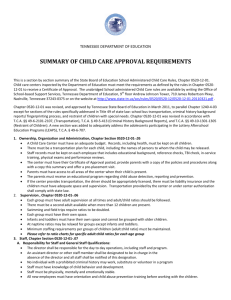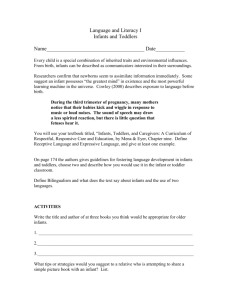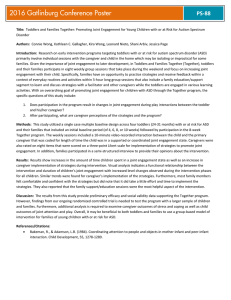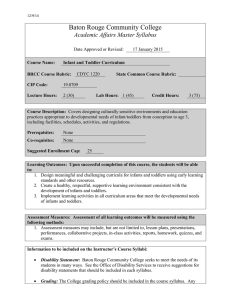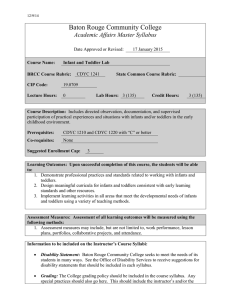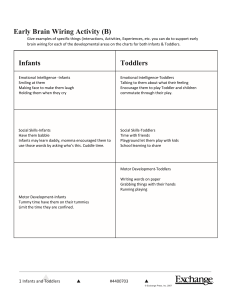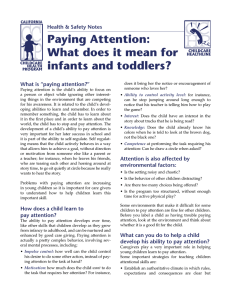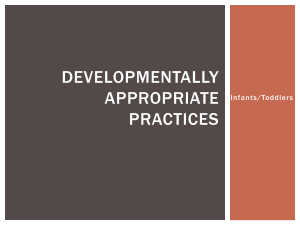outline CD 30 chapter 1
advertisement
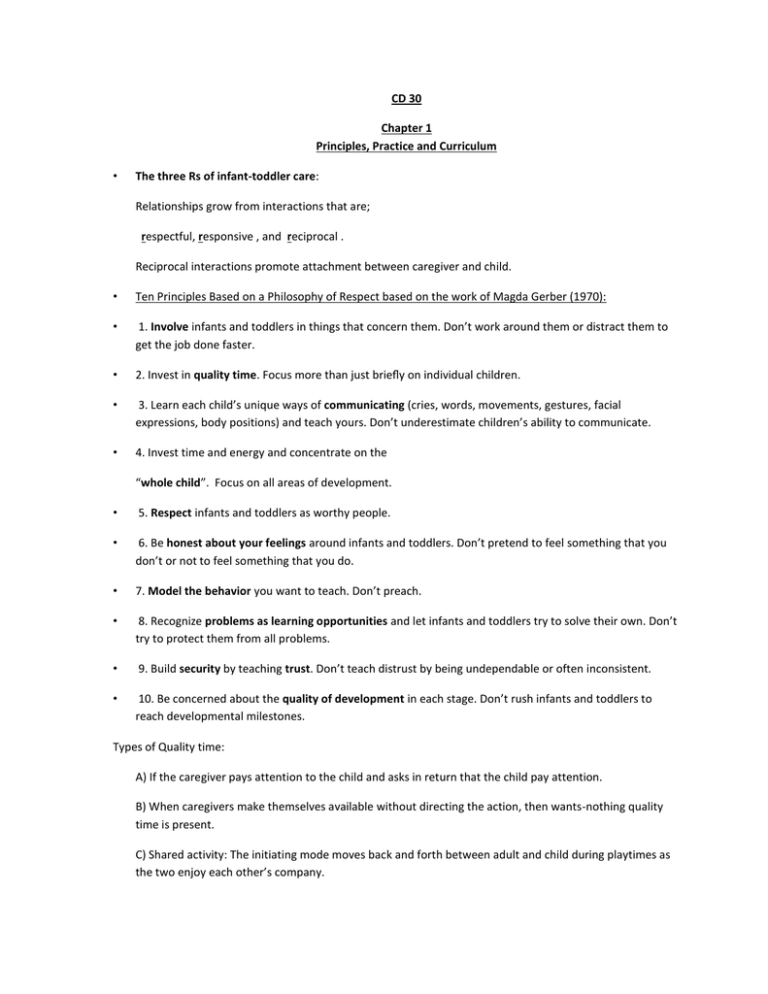
CD 30 Chapter 1 Principles, Practice and Curriculum • The three Rs of infant-toddler care: Relationships grow from interactions that are; respectful, responsive , and reciprocal . Reciprocal interactions promote attachment between caregiver and child. • Ten Principles Based on a Philosophy of Respect based on the work of Magda Gerber (1970): • 1. Involve infants and toddlers in things that concern them. Don’t work around them or distract them to get the job done faster. • 2. Invest in quality time. Focus more than just briefly on individual children. • 3. Learn each child’s unique ways of communicating (cries, words, movements, gestures, facial expressions, body positions) and teach yours. Don’t underestimate children’s ability to communicate. • 4. Invest time and energy and concentrate on the “whole child”. Focus on all areas of development. • 5. Respect infants and toddlers as worthy people. • 6. Be honest about your feelings around infants and toddlers. Don’t pretend to feel something that you don’t or not to feel something that you do. • 7. Model the behavior you want to teach. Don’t preach. • 8. Recognize problems as learning opportunities and let infants and toddlers try to solve their own. Don’t try to protect them from all problems. • 9. Build security by teaching trust. Don’t teach distrust by being undependable or often inconsistent. • 10. Be concerned about the quality of development in each stage. Don’t rush infants and toddlers to reach developmental milestones. Types of Quality time: A) If the caregiver pays attention to the child and asks in return that the child pay attention. B) When caregivers make themselves available without directing the action, then wants-nothing quality time is present. C) Shared activity: The initiating mode moves back and forth between adult and child during playtimes as the two enjoy each other’s company. What does it mean to respect a child? To gain respect, caregiver has to model for children. Respect child’s right to have and express feelings. When there is argument among children the aggressor needs to be dealt with gently and non-judgmental. The victim needs to be dealt with empathetically but not sympathetically. Facilitating allows the child freedom to work toward his own solution. • To develop trust, infant’s needs are satisfied by an adult and they learn that the world is a secure place for them. Caregiver while providing security, support, and empathy expresses acceptance of the baby’s right to be unhappy. Learning to predict what will happen is an important part of building trust. When is the child ready to learn? Learning develops when the child is ready, not when the adults decide it’s time. Caregivers can provide experiences and opportunities for children to develop skills. Perfecting skills is more important than pushing children to develop new ones. Every child has strengths and challenges. Guidelines for developmentally appropriate practice: 1. Practice based on research and child development principles that relate to typical development . 2. Knowledge base in individually appropriate practice (IAP) that relates to all kinds of differences that may or may not be specifically related to disabilities or other kinds of mental, physical, or emotional challenges. 3. Culturally appropriate practice come from differences in perceptions, values, beliefs, priorities, and traditions. Caregivers are; environmental planners, curriculum designers, facilitators of learning, supporters of development, and assessors.

